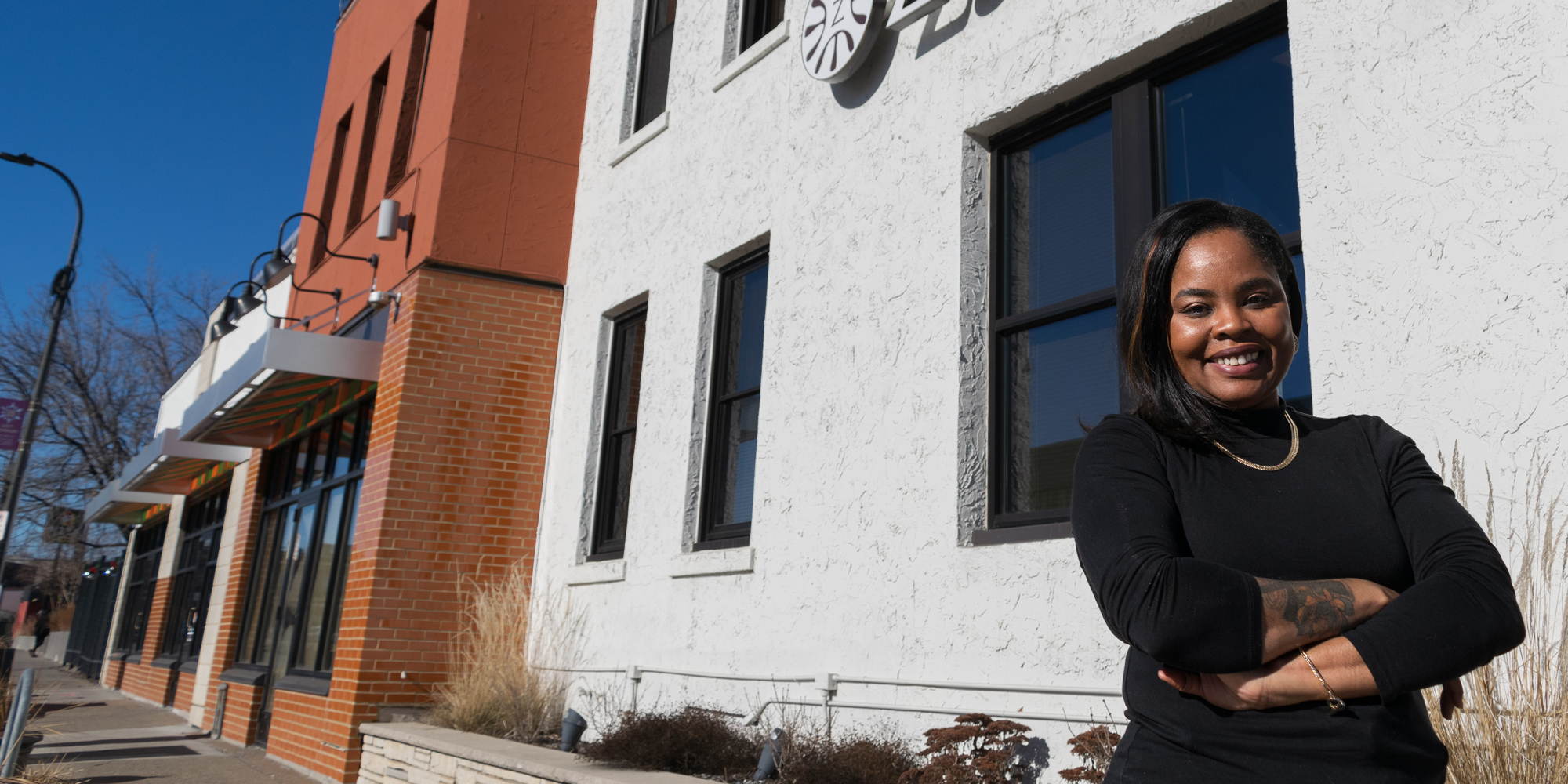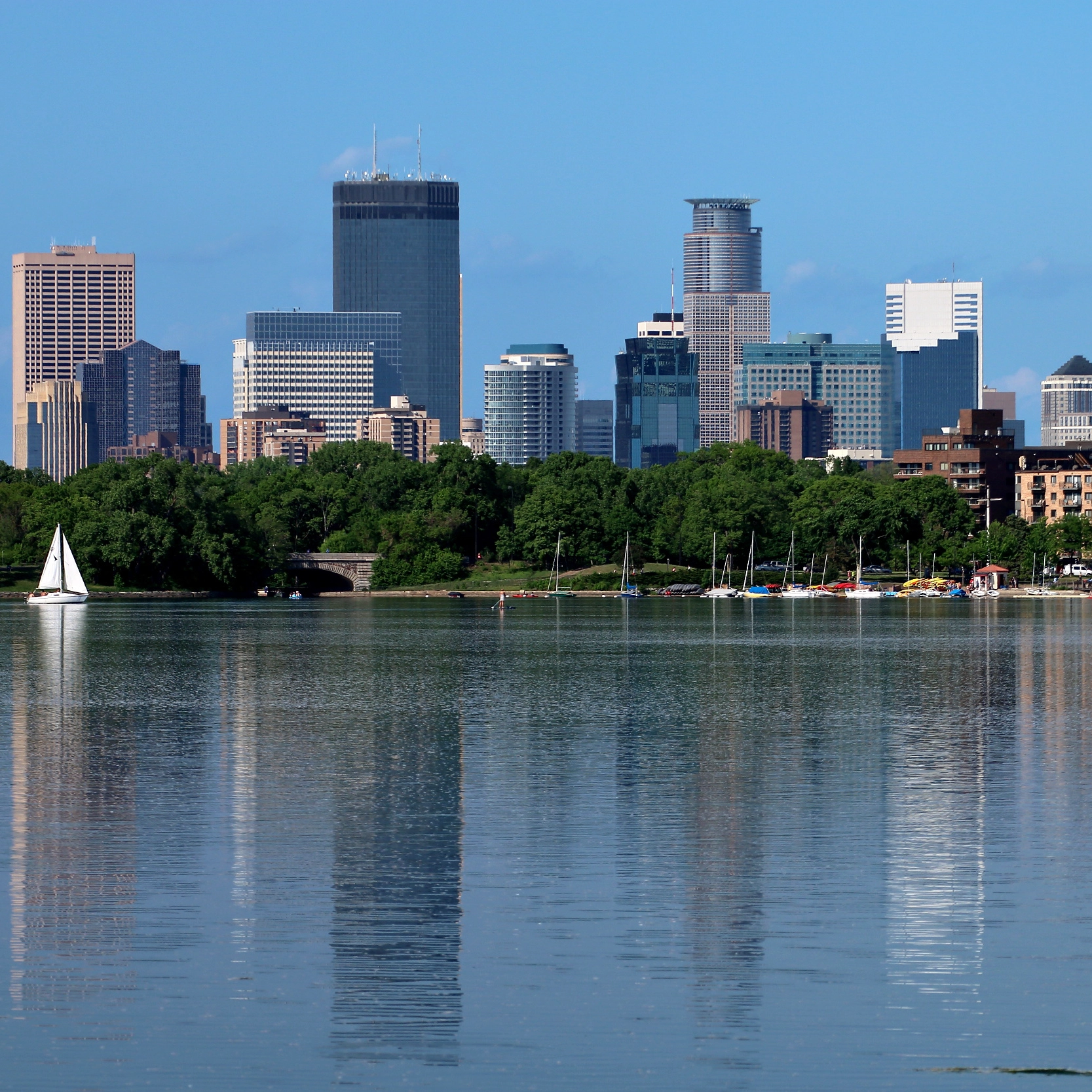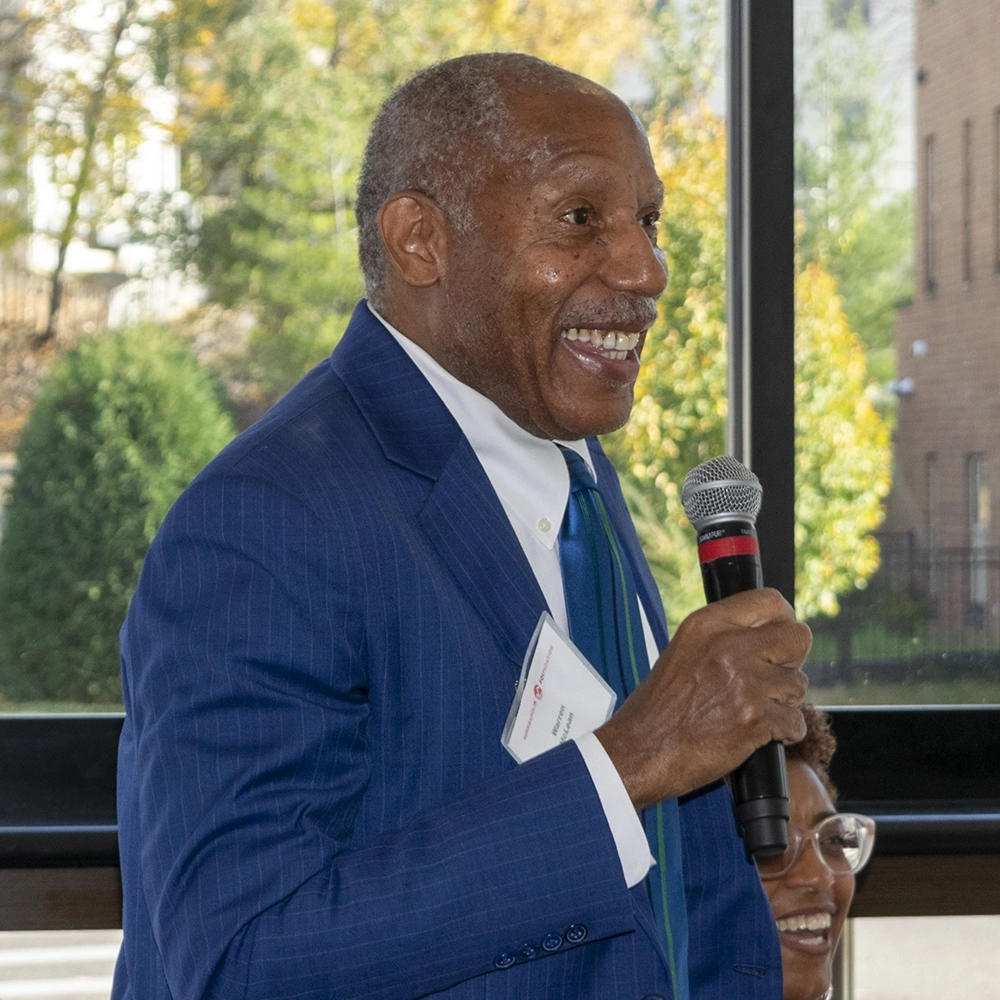Supporting the
Economic Visions
of Minnesotans

By fueling the dreams of local business owners and developers, Main Street grants are helping communities in Minneapolis and nearby suburbs build for the future.
The small businesses range from a family-owned pizzeria to an auto care shop, a health clinic to a tax preparation service. There are larger projects, too—redevelopment and new construction of apartments, offices, and retail space. Some are led by longtime business owners determined to rebuild after the pandemic, others by young entrepreneurs eager to prosper and give something back to their communities.
The projects and businesses fueled by Main Street Economic Revitalization grants provide a diverse array of services that reflect the needs of their neighborhoods and the dreams of the Minnesotans behind them.
For Kenya McKnight-Ahad, it started with “a big, lofty vision” of creating an incubator space in North Minneapolis for small businesses owned by Black women. McKnight-Ahad and the Black Women’s Wealth Alliance, which she founded, are bringing that vision to life through the ZaRah Center on West Broadway Av. With support from a Main Street grant, the Center is undergoing a major renovation that will expand its potential to nurture budding entrepreneurs and provide gathering space and services for the whole community.
“I know several people—across all of the corridors that the Main Street program supports—who got these funds, and it’s critical,” McKnight-Ahad said.
ZaRah Center is just one of the projects getting a boost from the state’s Main Street Economic Revitalization program. Established through bipartisan legislation in 2021 and expanded the following year, the Main Street program is helping communities across the state not only recover from the economic impact of the pandemic and George Floyd’s murder, but reimagine what they can be.

The Minneapolis Foundation, in partnership with LISC Twin Cities, Propel Nonprofits, and the Metropolitan Economic Development Association, was chosen by the state to administer Main Street grants in Minneapolis and two northwestern suburbs, Brooklyn Center and Brooklyn Park. To date, we have committed more than $24 million to 62 projects in commercial corridors that were hit hard by the events of 2020—from Lake Street and the intersection of 38th Street and Chicago Av. to Franklin Av., the Cedar-Riverside neighborhood, and key areas of North Minneapolis.
Grantmaking decisions are made with significant guidance from local stakeholder tables composed of residents, business owners, neighborhood associations, lenders, and nonprofits. “These grants reflect our commitment to supporting projects that matter to local communities, and they showcase the transformative rebuilding that’s possible when our state invests in small business owners and developers,” said Jo-Anne Stately, Senior Vice President of Impact at the Minneapolis Foundation.
Just upstream from the North Loop along the Mississippi River, Northsider Jesse Ross bought a 68,000-square-foot warehouse that he is developing into a multi-use community gathering and creative coworking space, with support from a Main Street grant.
“Being able to say, not only am I a building owner, but I am a contributor to workforce development and what that looks like in North Minneapolis – I think that’s huge.” — Jesse Ross
On Chicago Av. in South Minneapolis, a Main Street grant is helping nonprofit Pillsbury United Communities develop the southern campus of Pillsbury Creative Commons, a hub for social enterprise and workforce development that will include a training workshop, artist housing, and a new, much more visible home for local radio station KRSM.
In addition to offering a host of needed services, the Commons marks a big symbolic win for the neighborhood, said Signe Harriday, Artistic Producing Director at Pillsbury House + Theatre. “When you literally have a window into that DJ booth, and you get the see the 60 different people whose voices are being amplified on the airwaves, I think you get a sense of connection that you don’t have when you can’t actually see it.”
Some Main Street grants have gone to relatively small projects, such as the addition of new bays in a Latino-owned auto service center on Lake Street. Other grants are one piece of the puzzle in large projects with many partners and complex financing, such as the restoration of the historic Coliseum Building, a community-driven project led by Redesign, Inc. and a group of three Black-owned businesses that will own as well as occupy the property.
The Minneapolis Foundation and our partners have worked to provide Main Street funding to projects at every stage of development. Some, like the Eat Street Crossing food hall, got an extra boost as they were nearing the finish line and getting ready to open. Others need more time to come to fruition, including ambitious projects like the Coliseum Building restoration that were specifically designed to reflect neighborhood priorities and empower local entrepreneurs of color. All are threads in the much larger tapestry of economic revitalization that is taking place in local communities and across the state.
“There’s more progress to be made, of course,” Ross said. “I think that there’s an opportunity for all of us to figure out our role. And so one thing I ask people all the time is, what is your role in creating communities that you can be proud of?”
Hear more from Jesse Ross, Kenya McKnight-Ahad, and others leading work fueled by Main Street grants in this 3-minute video:

